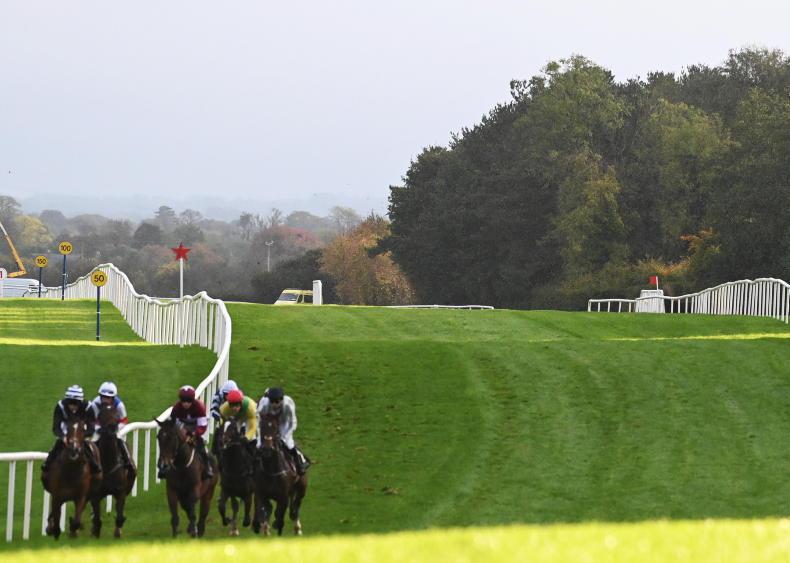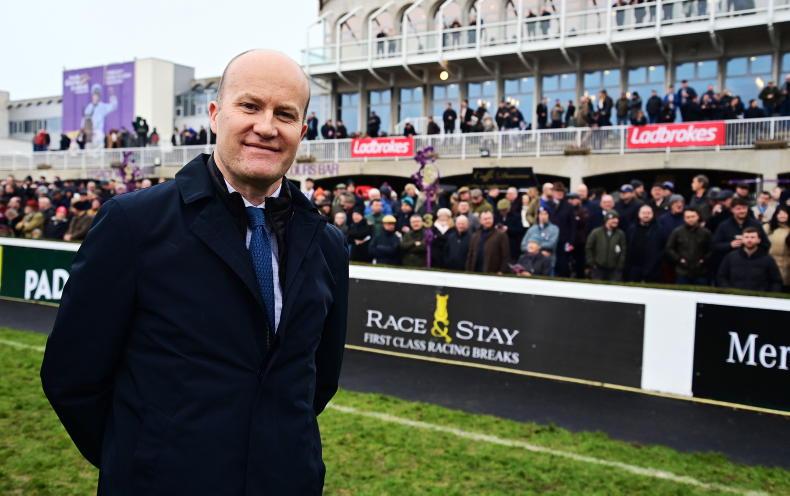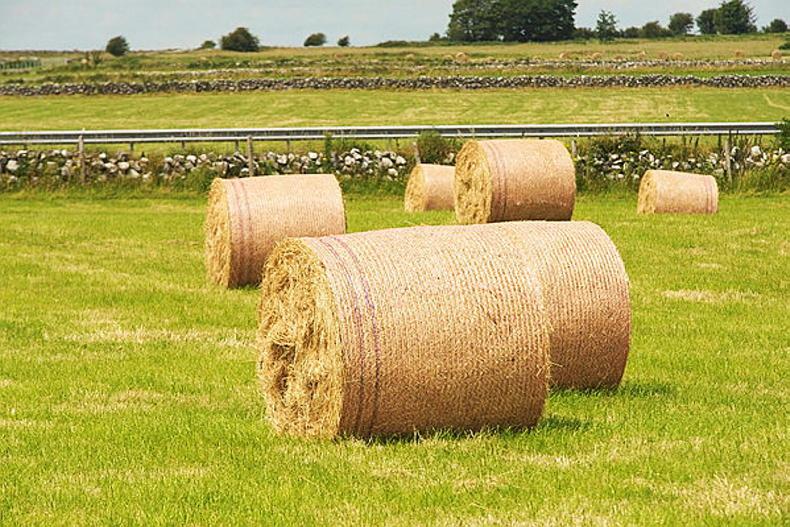ENVIRONMENTAL issues have played a bigger part in all our lives in recent years.
At home and in the workplace we are more conscious than ever of recycling, pollution, and how we use scarce resources, such as energy and water.
News reports across all media constantly remind us of climate change impacts all over the world, and we’ve seen our own weather become less predictable and more extreme – think record temperatures and flash floods.
This week Horse Racing Ireland launched its first Sustainability Strategy. The 20-page document sets out ways in which both the semi-state body itself, its subsidiaries and also the wider Irish racing industry can make incremental changes in the things they do which will make a difference.
“Is this going to cost me money?” is probably going to be the first question many business owners will ask themselves. The answer is that it might well save you money, according to Victor Quinlan of HRI.
As Capital Development Manager with HRI, Victor is responsible for administering the fund used to improve racecourse facilities. However, his background in civil and environmental engineering meant that he was also the right person to be the Environmental Sustainability Lead at HRI.
Speaking to Victor this week, his passion for this project was evident. He accepts we are not going to change the world overnight and stresses that we are all just starting out on this journey. “We want to be in a position to be able to point people in the right direction when it comes to sustainability” he said.
“There is no silver bullet for ‘greening’ the industry. It’s about hundreds of little improvements in operational items, physical infrastructure, doing simple things and learning from each other about what works, what saves money and reduces our carbon footprint. It’s about finding a balance between doing the right thing and not putting undue cost on anyone.”

Q: What was the first step in creating the Sustainability Strategy?
Victor: We began this process by engaging with industry stakeholders, including our own racecourse partners. It was refreshing to learn that sustainability was on everyone’s agenda. It’s something they wanted to get involved with but often the roadblock was simply that they didn’t know what steps to take.
Q: Is the Strategy all about recycling, planting trees and conserving resources?
Victor: We’re approaching sustainability from three pillars – Environmental, Social and Governance.
HRI is already strong on governance. We have a Board committed to this Strategy and committees in place to ensure we work towards the explicit targets set for us as a public sector body.
We also have a lot done on the social side, in terms of how we treat employees, for example, we recently achieved IBECs ‘KeepWell’ mark. There is strong engagement with local communities and schools. We are aiming for a diverse and inclusive workforce, one with an appropriate gender balance, and giving people training opportunities, mentoring, and a clear career path. This should extend to the wider industry not just HRI and its subsidiaries.
Q: But is the environmental side the one where most of us can easily make changes for the better?
Victor: Yes. There is a huge biodiversity story to be told in racing. You may have seen reports of racecourses planting trees recently. It’s also acceptable now to ‘rewild’ some areas – the grass does not have to be mown to one-inch high everywhere, all the time.
But racecourses won’t be able to do everything. There is only so much you can do with the core infrastructure. For example, on winter racedays the heating has to be turned on and yet the doors are all open. We want to figure out what works, practically, and be a source of knowledge for others in the industry. So we can say ‘we did this and it both reduced our CO2 emissions and saved us money as well. The two can go hand-in-hand.”
Q: There must be huge opportunities to reduce wastage at racecourses in terms of food, racecards, et cetera?
Victor: Our catering partners are really engaged on this. We’re looking to see if food and beverage packaging can be compostable, not just recyclable. We’re conscious of sourcing food locally, which is good for the economy too.
Q: Isn’t racing and breeding already a ‘green’ activity? We have low density stocking, no emissions from horses, and stud farms and racecourses are carbon sinks/green sites. Surely the equine sector is one of the good guys?
Victor: Yes, absolutely right, but the flip side of that is we are transporting horses and industry people all over the country in diesel-fuelled trucks and cars on a daily basis.
All haulage related industries are grappling with the issue. Can we switch to bio-fuels/battery-powered? That will come at a cost. Hopefully Government will continue to incentivise people and businesses to switch away from fossil fuels.
We should all fly and drive less, but life must go on and we have to find a balance. This is ‘Day Zero’. We are just starting. Let’s get the low-cost wins first and be able to say in a year’s time, “We have achieved a certain percentage of improvement from where we were.”
Q: Will there be regular reports/updates on how the Strategy is going?
Victor: The plan is to have an annual update. That’s part of our governance – as a public body we have to file reports at certain times and there is a lot more reporting going to be introduced by government.
We want to be seen to be leading sustainability, to have set ambitious targets, and to be getting buy-in from the wider industry.
Q: Where can The Irish Field readers or industry participants learn more about it?
Victor: The Strategy will be on our website and will be circulated throughout the industry. (see charter on page 9). By making the document public, we are happy to hold ourselves accountable.
CLICK HERE FOR MORE INFORMATION ON HRI'S SUSTAINABILITY STRATEGY


 This is a subscriber-only article
This is a subscriber-only article
 It looks like you're browsing in private mode
It looks like you're browsing in private mode











SHARING OPTIONS: